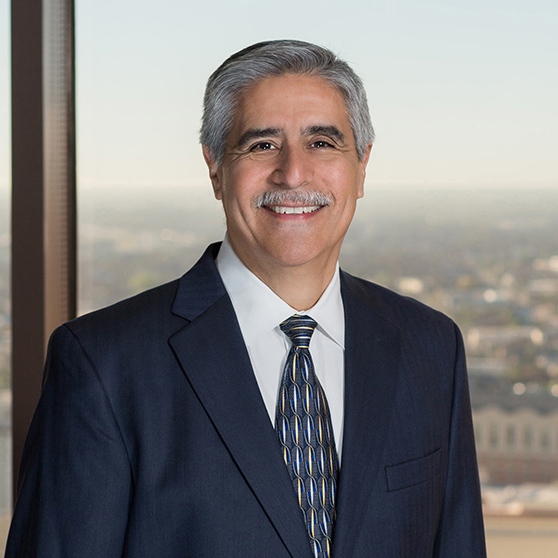By Richard Garza & Lionel Schooler
The COVID-19 pandemic has triggered unprecedented challenges for companies striving to ensure a safe work environment. Scrutinizing the manner in which companies have addressed these challenges has so far been conducted primarily by government agencies such as the Occupational Safety and Health Administration (OSHA). That trend is changing, with employees and their heirs now turning to the courts to seek redress for injury or death allegedly caused by employers’ failure to protect employees from contracting COVID-19. This trend triggers a new challenge for employers who do not subscribe to Texas’ workers’ compensation regime.
Workers’ Compensation Non-Subscriber Exposure
Texas law does not require employers to subscribe to workers compensation insurance for their employees. However, an employer’s failure to provide this coverage comes with added risk by the loss of common-law defenses typically asserted in negligence cases, including contributory negligence, assumption of risk, and negligence of fellow employees. In a lawsuit against a nonsubscriber, the plaintiff (i.e. the employee or his/her heirs in the event of death of the employee) must prove the employer was negligent. Without common law defenses, the employer must prove that the employee’s actions were the sole proximate cause of his/her injuries to avoid liability. In other words, if the plaintiff proves the employer has been even 1% negligent, the employer can be liable for the damages suffered by the plaintiff.
In addition to the low liability threshold, the presentation of the employer’s defense in such a claim may be more difficult depending on whether a jury, a judge or an arbitrator will consider the facts and determine the issues of liability and damages in the case. To avoid jury trials on this type of claim, employers in non-subscriber benefit plans have utilized arbitration of claims or jury waivers (where a judge decides liability and damages).
Recent Example of Risks of COVID-19 Liability for Non-Subscribers
A lawsuit was filed in May 2020 in a Texas federal court against Tyson Foods on the basis of its status as a non-subscriber under the Texas Workers’ Compensation Act. Although the lawsuit was subsequently dismissed, it reveals the significant obstacles in prosecuting and defending negligence claims for COVID-19-related illness. Pwar Gay worked as a meatcutter at the Tyson Foods meatpacking plant in Amarillo. The lawsuit alleged that she suffered an injury to her knees while on the job, that she received first aid treatment at the company clinic for her knee injuries and, despite suffering from pain and swelling, that she was then returned to work due to a shortage in staff at the plant. The lawsuit also alleged that Ms. Gay was required to work at the plant during the coronavirus pandemic without personal protective equipment, that she became ill, was admitted to a hospital for several weeks as a result of the combination of her knee injuries and COVID-19 symptoms, and that she died on May 8, 2020 as a result of complications from COVID-19.
Accordingly, Ms. Gay’s heirs asserted in the lawsuit that Tyson Foods was negligent and grossly negligent by failing to provide a safe workplace, failing to protect employees against coronavirus, failing to hire competent co-employees, failing to supervise its employees, failing to warn Ms. Gay of slip hazards (related to her knee injuries), failing properly to train employees on safety protocols, and failing properly to supervise employees on a regular basis and under pandemic conditions.
The allegations in the lawsuit suggest that Ms. Gay’s knee injury apparently occurred in the plant and was immediately known to Tyson Foods. This awareness may not have included the risk of coronavirus infection. The Gay family, had it chosen to pursue this lawsuit, would have been required to prove that Ms. Gay contracted the virus in the Tyson plant. Given the reports of community-wide spread of coronavirus, Ms. Gay’s infection at the plant would have been difficult to establish since there was no specific incident identified from which the illness manifested. Ms. Gay’s activities, and those of individuals with whom she came into contact during the coronavirus pandemic would have been a focus of Tyson’s defense of the case to establish the possibility that Ms. Gay contracted the virus outside the workplace.
Assessing Potential Liability for Workplace Exposure to COVID-19
The allegations in this lawsuit focused attention on what Tyson Foods did or did not do to ensure a safe work environment for Ms. Gay. In relation to the slip and fall claim, the analysis would certainly have focused on factors such as the shoes Ms. Gay was wearing when injured, the type of flooring at the location of the incident, whether there were floor mats in the area where Ms. Gay slipped, as well as other factors typically associated with a slip and fall claim, a claim that is relatively common in a non-subscriber context. On the other hand, COVID-19 infection claims are atypical given the shifting standards and expectations imposed upon employers having to respond to COVID-19 hazards in the workplace. Such shifting has been evident from guidance issued by the Centers for Disease Control and Prevention (CDC), OSHA and other Department of Labor umbrella agencies relating to COVID-19, pronouncements that have frequently been modified since the initial recommendations issued by the CDC.
Strategies for Combatting COVID-19 Workplace Risks
In responding to this new legal landscape, employers have endeavored to change business operations to comply with governmental workplace safety recommendations. Even so, allegations in the lawsuit referenced above trigger questions that will confront non-subscribing employers, such as: what did the employer know?; when did the employer know it?; and what did the employer do with such information to create a safe environment by which to combat COVID-19 infection?
Armed with the legal landscape established by the allegations in the Tyson Foods lawsuit, nonsubscriber employers should anticipate the legal and evidentiary demands they may confront by gathering information relating to efforts to conform practices to government (state and federal) orders and recommendations to combat the spread of COVID-19. Additionally, they should prepare for potential testimonial demands by identifying appropriate safety and human resources representatives who can articulate the procedures adopted to meet a changing landscape of government orders and guidance, the better to demonstrate that they made reasonable efforts to meet their duty to provide a safe work environment for employees.
Meet Rick
Richard G. Garza leads the labor and employment group in Jackson Walker’s San Antonio office. Board certified in Labor and Employment Law by the Texas Board of Specialization, Rick’s practice focuses on representing employers in all aspects of employment-related matters, including formulating and drafting employment contracts and policies and representing employers in administrative/investigation proceedings, state and federal trial and appellate courts. In recognition of his work as a labor and employment litigator, he was named among The Best Lawyers in America in 2019 and has been included in the “Best S.A. Lawyers” list by San Antonio Scene since 2007.
Meet Lonnie
Lionel M. Schooler is a management-side employment lawyer and recognized authority on employment law, federal appellate practice, and arbitration. Lonnie’s employment practice focuses on counseling clients and litigating, on a nationwide basis, claims under all employment laws, wage and hour claims, and investigations by the Equal Employment Opportunity Commission, the U.S. Department of Labor, and the Texas Workforce Commission. Lonnie is also experienced as an arbitrator on the Commercial and Employment Panels of the American Arbitration Association and as an advocate. He was selected for inclusion by the National Association of Distinguished Neutrals and is certified as a Fellow of the Chartered Institute of Arbitrators for international arbitration matters. Since 2017, Lonnie has served on the Board of Directors of the Houston Bar Association. His previous editorial experience includes serving as editor-in-chief of The Houston Lawyer, a bimonthly publication of the Houston Bar Association.
Related Resources:
Please note: This article and any resources presented on the JW Coronavirus Insights & Resources site are for informational purposes only, do not constitute legal or medical advice, and are not a substitute for legal advice from qualified counsel. The laws of other states and nations may be entirely different from what is described. Your use of these materials does not create an attorney-client relationship between you and Jackson Walker. The facts and results of each case will vary, and no particular result can be guaranteed.

